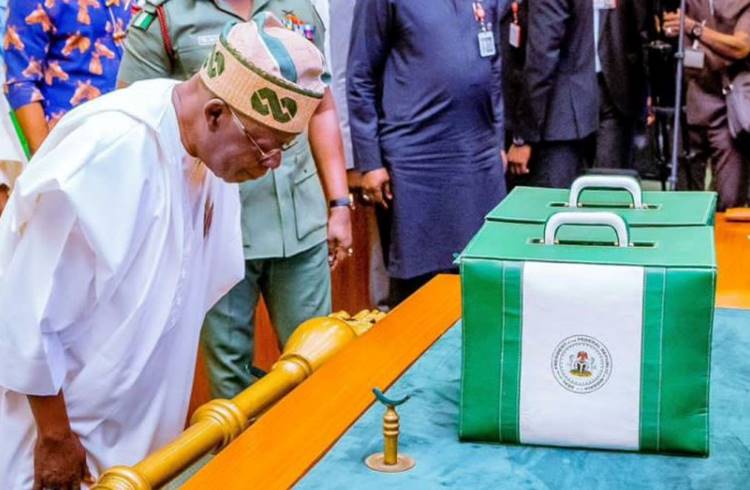- The 2026 budget delay is raising tension across markets and public institutions.
- Federal Executive Council has yet to receive the 2026 budget draft for approval.
- Senate demands detailed reports before considering the new fiscal framework.
- The prolonged wait fuels uncertainty over Nigeria’s 2026 budget projections.
For weeks, tension has mounted as the Federal Government fails to move forward with the 2026 budget cycle. The usual timelines appear to be slipping away, raising fears that Nigeria may once again experience late appropriations, rushed approvals and weak compliance with fiscal rules, issues that have damaged budget credibility in previous years.
Six weeks to the start of a new financial year, the executive arm has not transmitted the 2026 budget draft to the Federal Executive Council (FEC), the first mandatory step before it proceeds to the National Assembly. The delay is expected to worsen due to the Senate’s demand for a full performance breakdown of the 2024 budget, implementation projections for 2025 capital spending, and an updated Medium Term Expenditure Framework/Fiscal Strategy Paper (MTEF/FSP).
ATTENTION: Click “HERE” to join our WhatsApp group and receive News updates directly on your WhatsApp!
READ ALSO: Gumi Fires Back: Cleric Says He Committed No Crime Engaging Bandits
The Senate Committee on Finance, led by Mohammed Sani Musa, issued the directive after a closed-door engagement with the Minister of Finance, Wale Edun; the Accountant-General of the Federation, Samsudeen Ogunjimi; and the Director-General of the Budget Office, Tanimu Yakubu. Lawmakers insisted that fresh documents be submitted before discussions on the 2026–2028 MTEF could even begin.
Although a brief fourth-quarter performance report of the 2024 budget was released in October, it remains unclear whether the Senate has reviewed it or if the document meets its expectations. The slow handling of the MTEF/FSP has already violated specific provisions of the Fiscal Responsibility Act, which mandates early preparation and timely submission of the medium-term template, not later than four months before the new fiscal year begins.
Several assumptions in the current MTEF are now outdated. The rolling plan projected oil prices at $75 per barrel, yet average prices have stayed below $70 for months. Even a cautious outlook places crude closer to $65. The oil production target of two million barrels per day also appears unrealistic, despite government efforts to curb oil theft and revive inactive wells.
With less than two months before the year ends, the executive has neither submitted a revised MTEF nor transmitted the 2026 budget for approval. The Ministry of Budget and Economic Planning, working with the Budget Office, will still need to pass the document through FEC, which may request adjustments, extending the process further. While the President could bypass certain steps for speed, doing so would worsen fiscal disorder, weaken confidence and increase market risks.
The consequences of these delays are already visible. Many ministries, departments and agencies (MDAs) are battling severe underfunding, affecting essential programmes and staff motivation. According to senior officials, some human capital development initiatives have been suspended for more than two years, and even basic work tools remain inadequate in several institutions.
Budget performance reports, once issued quarterly, have also disappeared for almost two years, lowering transparency and making it difficult to track expenditure. Contractors who completed government projects continue to face payment delays, triggering protests that recently forced the House of Representatives to halt its plenary.
To control spending pressure, the Ministry of Finance introduced a new rule requiring MDAs to obtain warrants and authority to incur expenditure (AIEs) before making fresh commitments. However, experts say this will have minimal impact unless the government receives significant new revenue to clear existing obligations.
READ ALSO: Gunmen Abduct Kebbi Schoolgirls, Kill Staff Member in Dawn Attack
While the Federal Government lags behind, many states have already begun their budget cycles. Bayelsa, Ekiti, Osun and Cross River have submitted appropriation bills, and several governors are holding town-hall meetings ahead of their legislative engagements.
Last year, the Presidency submitted the 2025 budget just days before Christmas. But signs of early progress appeared in July when the Budget Office issued the 2026 Personnel Cost Budget Call Circular, directing MDAs to begin preparing proposals. The circular suggested that the 2026–2028 MTEF/FSP would be concluded by July 2025, aligning with the Fiscal Responsibility Act.
Yet this expectation is now in doubt. For an economy where government spending strongly influences private sector survival, any delay in approving the 2026 budget carries serious consequences for businesses, workers and households already battling economic pressure.


